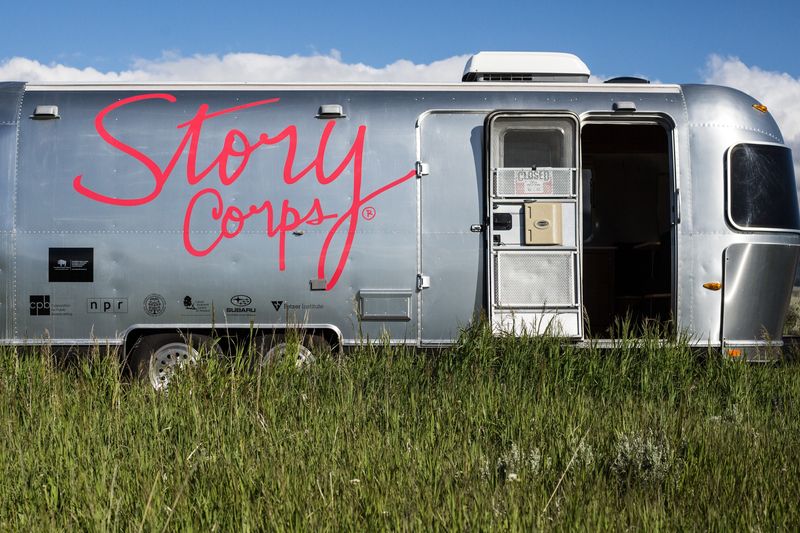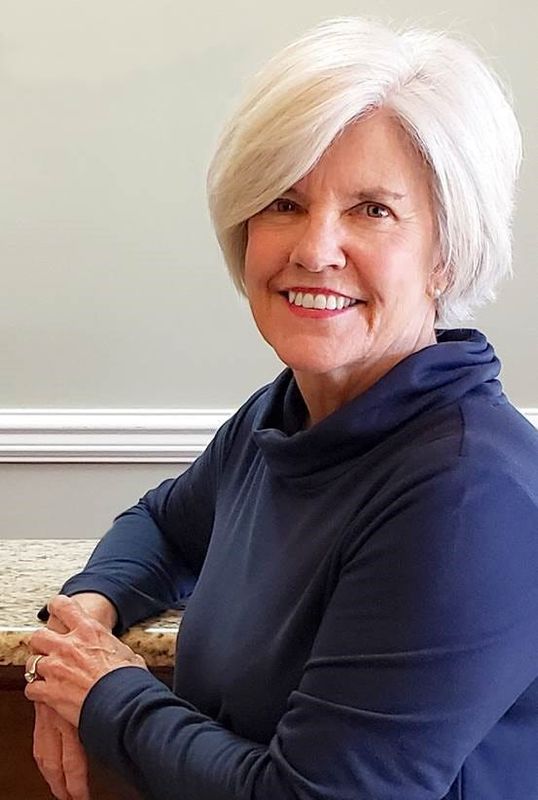One of the most profound times in the life of my church, the Tallahassee Fellowship, was when we decided to share with each other our life stories. Each member was invited to take a Sunday to share their story and, as the pastor, I built in readings, prayers, and hymns based on the members’ favorites, to create a unique time of worship.
We have had other seasons in our 21-year history when we shared our stories, favorite passages, or favorite hymns, but it was not as meaningful as the time I am recalling in April through November 2022. And I wonder if the difference was the thoughtful questions that each of us used to prepare for sharing, even if we ended up not telling our stories, as did a few.

Preserving life stories at StoryCorps
In 2003, David Avram Isay, a documentary radio producer, had an idea about recording the story of thousands of people to learn what it means to be human. He founded StoryCorps, an independent nonprofit organization based in Brooklyn, New York, with the goal of recording and preserving the life stories and wisdom of everyday Americans.
It began with a recording booth in Grand Central Station terminal in New York City. The idea was to bring someone to the booth with whom you wanted to have a conversation that would be recorded and preserved for future generations at the American Folklife Center at the Library of Congress. The booth microphone seemed to give persons permission to talk, and the trained facilitator, the only other person in the booth, was there to bear witness as a listener.
Through the years since StoryCorps was founded in 2003, it has taken on special initiatives, like: engaging 9/11 families, or Latinos, or African Americans, or people across political divides, in addition to encouraging the interest of anyone else interested in having a conversation with someone in their life.
In all the more than 700,000 stories shared in the 22 years since it’s inception, the same themes emerged: that people are basically good, that your life truly matters, and that you will be remembered.
What questions to ask
At the StoryCorps website, they offer great questions as the key to great conversations. Questions like, “How would you like to be remembered?” or “How has your life been different than what you’d imagined?” or “What have been some of the happiest times in your life? The saddest?” and hundreds of others by category of who you are talking with or a topic that you are focused on.
The instruction at the StoryCorps website, storycorps.org is to read through the questions, highlighting those you find most interesting, or to prompt some of your own.
I was deeply moved by the first StoryCorps animated audio-recording, featuring a 12-year-old child living with autism spectrum disorder, especially when I read that he wrote his own questions for his mother in their interview. It is a remarkable example of how poignant and healing these interviews can be and I encourage you to watch it at youtube.com.
Consider ‘Great Thanksgiving Listen’
In 2015, StoryCorps started the “Great Thanksgiving Listen.” After winning a substantial TED Prize, along with support from the John S. and James L. Knight Foundation, StoryCorps founder, David Isay, decided to use the money to develop a free StoryCorps app which has enabled educators, corporations, and individuals to capture important stories with greater ease.
The “Great Thanksgiving Listen” is a special invitation to people to create an oral history of our times by recording an interview with an elder, a mentor, a friend, or someone they admire during the Thanksgiving holiday.
On its 10th anniversary, perhaps you would like to join hundreds of others across the county who will make this the year that important conversation happens.
It could happen on the Friday after Thanksgiving, which is the “National Day of Listening” that was started by StoryCorps in 2008 as an antidote to Black Friday. Or any of the days that comprise your Thanksgiving celebration or beyond.
Practice a lost art
Listening seems to be a lost art in our culture in many ways. In a world where personal interests are deemed by many to be of highest priority, it can be difficult to expend the energy and time needed to truly listen. But when we find the will to deeply listen so that others feel heard and seen, the rewards for both the listener and the other are immeasurable.
Active or deep listening involves valuing the person with whom you are talking. It requires intention in remaining open-minded, intellectually humble, and genuinely curious. Deep listening requires focus and an honest interest in both hearing and understanding what is being said.
Author Rachel Naomi Remen, whose rabbinical grandfather loved her so deeply she always felt heard and seen, writes in her book “Kitchen Table Wisdom: Stories That Heal.” “Listening creates a holy silence. When you listen generously to people, they can hear the truth in themselves, often for the very first time. And in the silence of listening, you can know yourself in everyone. Eventually, you may be able to hear in everyone and beyond everyone, the unseen singing softly to itself and to you.”
When my congregation told our stories over a period of six months in 2022, we listened generously to each other, and it was transformative.
A few of the questions from the 20 that we used to guide our storytelling included: Tell us where you were born and what your family was like. What was the best part of your childhood? The worst? Can you tell us about the important people in your life? Tell us about a time when you didn’t know if you would make it. How has your faith shaped your life and how has it changed over time?
As we focus with gratitude on those we love this Thanksgiving weekend, I pray many of us will consider sharing our stories and listening to the stories of others with generosity. Perhaps some of us will even take the “Great Thanksgiving Listen” challenge at storycorps.org and record our story for future generations.
It is my prayer that more people feeling heard and seen will be a source of healing for us all.
The Rev. Candace McKibben is an ordained minister and pastor of Tallahassee Fellowship.
This article originally appeared on Tallahassee Democrat: Power of listening can guide oral history with family on Thanksgiving
Reporting by Rev. Candace McKibben, Guest columnist / Tallahassee Democrat
USA TODAY Network via Reuters Connect




